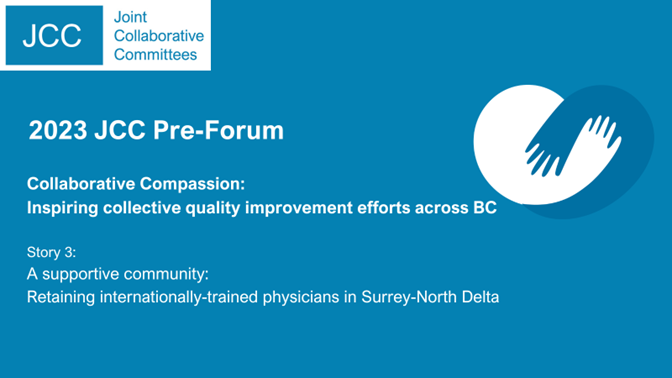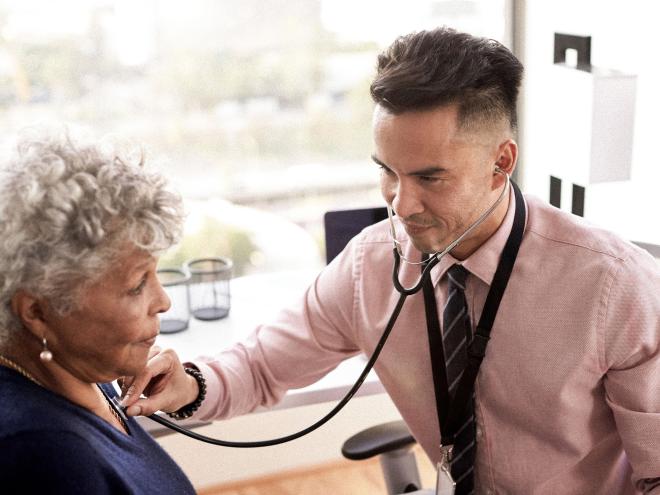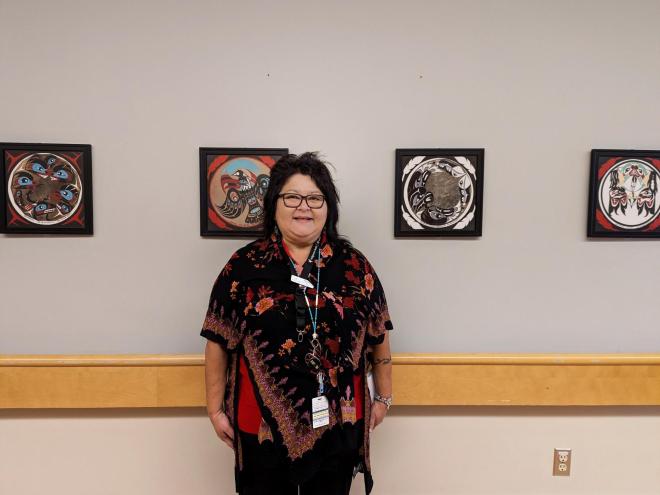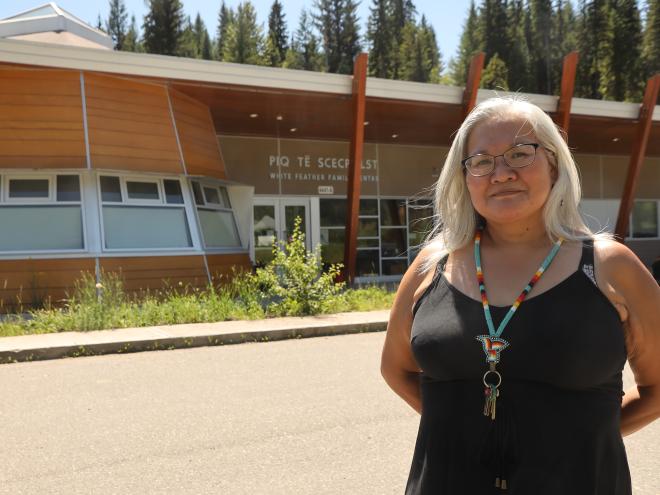
The beginning of any physician’s medical career can be a daunting time as residents take the leap into practice. While all physicians experience the intensity of the beginning of their medical careers, those who have trained outside of Canada also experience completing a ROS (return of service). This is a two-year work placement that Postgraduate Medical Education (PGME) International Medical Graduate (IMG) Program physicians undertake following the end of their residency period here in BC.
In the Surrey-North Delta area, the local Division of Family Practice has been working hard to optimize the placement experience for return of service family physicians. With a growing and diverse patient population, recruiting and retaining family doctors is a high priority to for the Division to ensure access to quality health care for local residents in the years to come.
“ROS physicians are required to build or assume a panel of patients, including patients with complex health needs,” explained Megan Shymanski, Recruitment and Retention Project Manager for the Surrey-North Delta Division of Family Practice. “Retaining ROS Physicians in Surrey-North Delta ensures that patients have access to longitudinal care, reducing the need for episodic care at walk-in clinics or emergency rooms.”
In previous years, physicians mentioned that more input when it came to placement choice in their clinics would result in better results for the individual and site alike. At times, some physicians felt like they ended up in placements that they did not feel suited to.
Taking this on board, the Division began to look at ways to enhance the placement process for all involved. Since 2015, the Division’s Recruitment, Retention, and Wellness Committee has been working on new approaches regarding placing internationally-trained physicians completing their return of service. Over the years, the Committee has consisted of a broad range of expert physicians, including long-time Surrey doctors, new physicians that have just completed residency in the US, an international graduate that joined the Committee whilst completing his ROS and stayed on for years after, and resident physician representatives.
According to Shymanski, this committee is “the driving force” behind the changes that now has the Division’s retention rate of internationally-trained physicians sitting at an impressive 77%. For the Committee, the most important step in this process was listening to—and incorporating—the experience of the physicians themselves. “I think the biggest roadblock faced by IMGs at the beginning of the placement process was the lack of input they had on where they spent the next two years of their lives,” Shymanski said.
The Committee worked to ensure the application process for foreign-trained physicians included both quantitative and qualitative elements, and added new questions based on feedback from applicants and clinics alike. The Division also began offering individuals tours of potential placement clinics. Shymanski noted that the tours are “really informal and organic” and allow physicians the opportunity to visualize themselves working in a different clinic.
“It’s an opportunity for the person to meet the physicians at the clinic, get a feel for the clinic space, and ask questions pertinent to how they want to practice,” said Shymanski. “The tours create much more of a holistic view of the clinic compared to the committee discussing a written application and picking clinics.”
The strategy means that more family physicians are choosing to stay in the area, and they can also learn on the job from the broad spectrum of patients living in this bustling urban community. Many physicians are choosing to add important longitudinal services such as perinatal care to their family medicine repertoires.
It’s clear that this approach from the Division is reaping real rewards. One internationally-trained physician shared in a recent evaluation how it made a positive impact on them: “Having our feedback taken into consideration when selecting ROS clinics makes us feel as though our voice is being heard.”
Looking into the future, the Division plans to continue to seek feedback and regularly revisit their placement processes. The team hopes to continue making the system more equitable for all involved, bolster these important relationships, and strengthen primary care in the area.



